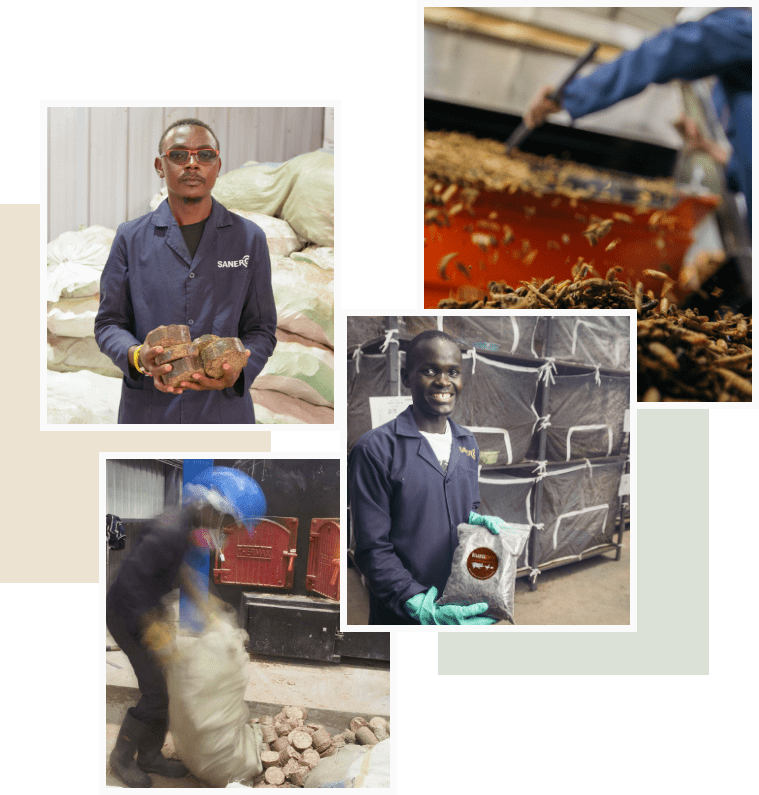
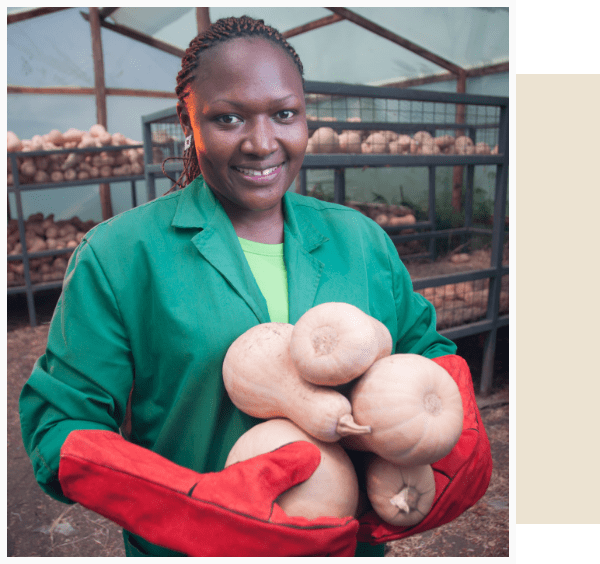
Evergrow Organic Fertilizer
Evergrow is a nutrient-rich, fully decomposed organic fertilizer that is beneficial in both nurturing the soil and enhancing resilience against the impact of climate change.
Regen Organics has two main product lines: Evergrow and Evergrow Gold, the latter is ECOCERT certified – the highest organic certification available. Farmers typically see a 30% increase in crop yields from using these products.
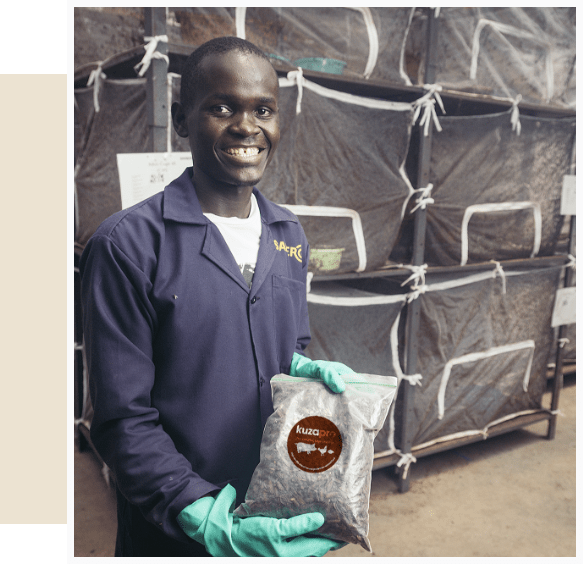
Production Method: Regen Organics undertakes thermophilic co-composting using windrows. Through the process, the feedstocks break down, pathogens are eliminated, and the end product is full of nutrients and minerals with the complexion of rich soil.
Environmental Benefit: Fertile soil is a prerequisite for sustainable agriculture. Indeed, the vast majority of arable land in emerging economies requires the soil to be conditioned for long term health. Organic fertilizer does this effectively, as well as reduces the dependence on mineral fertilizer. Organic fertilizer is also carbon-rich, and can be sequestered in the soil. Local production reduces the dependence on expensive, polluting global supply chains.
Evergrow Korn Kali: Evergrow + Korn Kali is a first of its kind organomineral fertilizer combining Evergrow with organic-label minerals to provide high levels of potassium and magnesium, which is especially valuable for tomatoes, potatoes, sugarcane, leafy vegetables, and coffee. Our partner for this product is K+S, which is one of Europe’s largest fertilizer manufacturers and has operations in over 50 countries
Biochar: Regen also produces carbon-rich Biochar, which helps the soil retain water and nutrients. Biochar production ensures that carbon is sequestered into the soil, which is vital in the fight against climate change
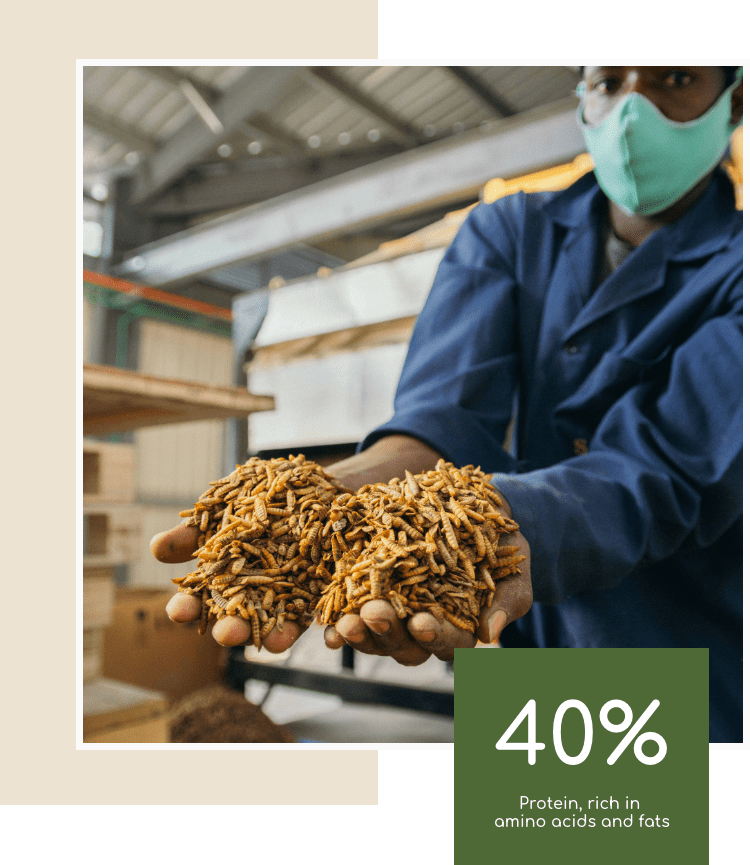
KuzaPro Insect Protein
Regen is expanding Kuza Pro production to South Africa. KuzaPro is 40% protein, rich in amino acids and fats, and is natural to the diets of chicken, fish, pork, and pets.
It is used either as a key ingredient for feed blends or as a whole kibble.
Production Method: Regen Organics raises Black Soldier Fly Larvae (BFSL) with proprietary recipes using feedstocks that combine locally available residual organics. Once mature, the BSF Larvae are pasteurized and dried. Regen Organics operates a thriving hatchery to maintain optimal production and support other initiatives using BSF larvae.
Environmental Benefit: BSFL protein replaces the need for soya, a monoculture crop that has caused significant deforestation, particularly of the Brazilian rainforest, and for fishmeal, which causes overfishing to the great destruction of marine ecosystems. Local production reduces the dependence on expensive, polluting global supply chains.
Black Soldier Fly Eggs
Production Method: Regen Organics produces Black Soldier Fly (BSF) eggs at its hatchery in Kilifi on the coast of Kenya. Regen uses these eggs for its own BSF production and sells the eggs to other Kenyan and international BSF companies, as well as to farmers with significant waste volumes.
Environmental Benefit: The production of BSF eggs helps reduce the demand for traditional protein sources like fishmeal and soy, both of which have significant environmental footprints. Additionally, the use of BSF eggs in various applications supports regenerative agriculture and waste management, contributing to a more sustainable food and feed system.
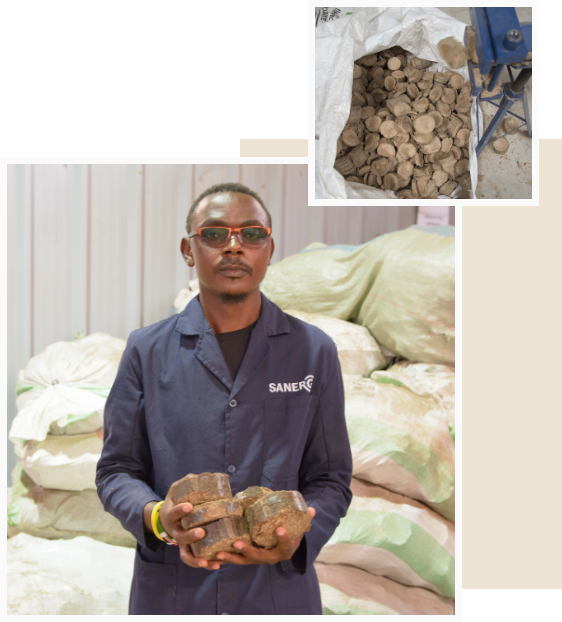
Each step of Regen Organics’ circular approach offsets or removes carbon and other greenhouse gasses (GHG) from entering into the atmosphere.
Circular Impact Carbon Credits
-
Safe collection and treatment of residual organics prevents the release of harmful GHGs that would occur if organics decomposed in landfills or open dumpsites.
-
Fertilizer sequesters carbon into the soil and reduces the dependence on chemical fertilizers that deplete soil health.
-
Insect protein prevents significant deforestation, particularly of rainforests caused by soya farming.
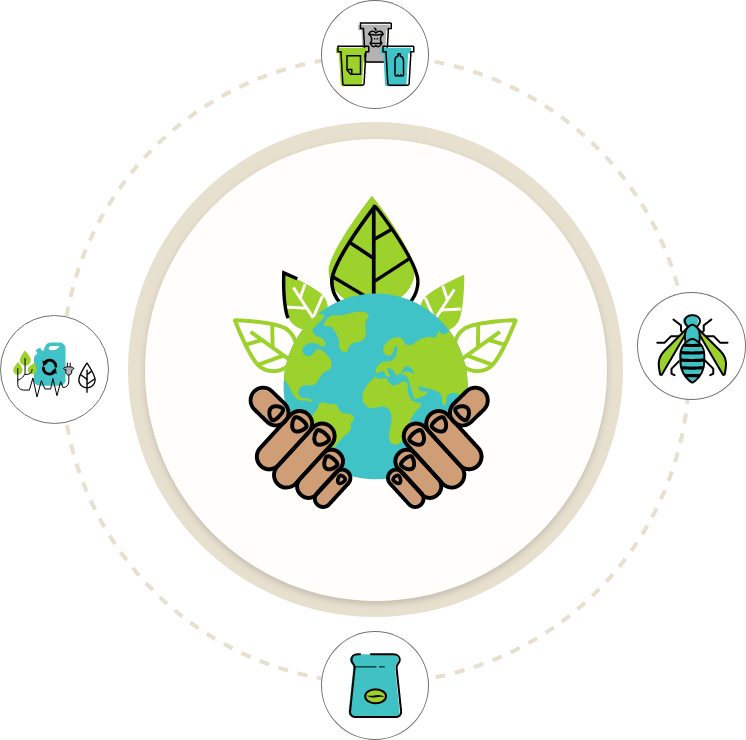
Our partner, Circular Impact, measures and values Regen Organics’ carbon offsets, which are sold into the carbon markets. This work drives the sustainability of our operations, and contributes to keeping our planet healthy.
Notice of Supply Chain (Scope 3) Emissions
Carbon credits may be issued through Verified Carbon Standard (VCS) project #4015 for the greenhouse gas emission reductions associated with Sanergy’s activities in producing compost and compressed fuel briquettes.






